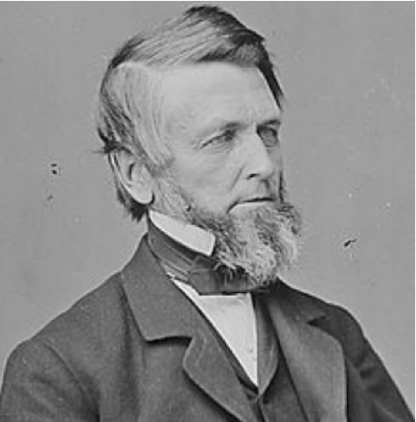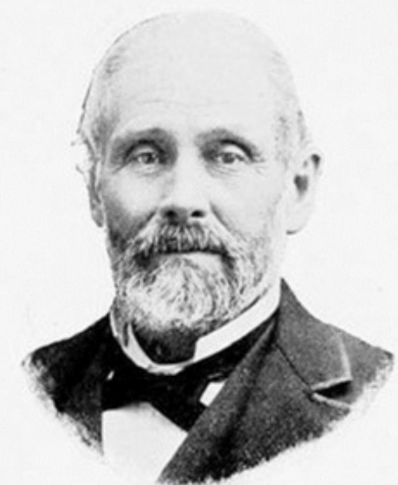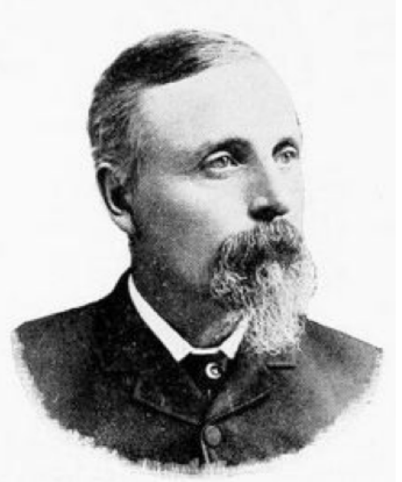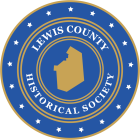The Might of the Press: Editors of Lewis County’s Whig Newspaper
Reprinted from the 2022 Lewis County Historical Society Journal
Generally speaking, Lewis County is considered conservative. However, the Northern Journal, a weekly newspaper published in Lowville from 1838 through 1859, promoted the ideals of the Second Great Awakening, a religious revival which had a tremendous effect on American society by spawning a large number of social reform movements. Evangelical Protestant ministers Daniel Nash and Charles Finney brought in new methods and a new attitude towards Christian revival.
Editors of the Northern Journal, a paper aligned with the traditionally conservative Whig political party, nonetheless supported the ideals of societal reform: abolition of slavery, temperance and the right to vote for women. The paper’s viewpoint began with its first editor, Ambrose W. Clark in 1838, and continued with editors Edwin R. Colston, Jason C. Easton and various partners, William Oland Bourne, Cordial Storrs Jr., George W. Fowler and the last editor, Henry A. Phillips, who consolidated the Northern Journal with the Lewis County Republican paper in 1860.
The latter paper was started in Martinsburg as a publication of the Democratic-Republicans, a political party founded by Thomas Jefferson and James Madison. In 1854, with the founding of the modern Republican Party as chief rival to the Democrats, the weekly paper became both Republican in politics and name, according to Lewis County historian G. Byron Bowen. Six years later, the merged publications became The Journal and Republican.

Ambrose W. Clark, the Northern Journal’s founding editor, set the stage for a progressive newspaper with his first four-page issue in February 1838. The front page listed the bank failures in each state and voiced the need for a sound and uniform currency. This was a response to the Panic of 1837, when 343 of the 850 banks in the U.S. failed as citizens rushed to exchange their paper money for gold and silver. The run on banks followed an executive order issued the previous year by President Andrew Jackson which required buyers of public lands to pay exclusively in gold or silver. Clark in his newspaper condemned the use of the system of state, bank and other coinages which failed.
Born near Cooperstown on Feb.19, 1810, Clark learned the printer’s trade in that village. He published the Otsego Republican for five years, traveled to the west and returned to upstate New York, where he started the Lowville paper. In 1846, he left the paper in Lewis County and moved to Watertown, taking over the Black River Journal. In 1860, he left newspaper publishing to embark on a political career. He served as a U.S. Congressman from 1861 to 1865 and later spent four years as U.S. consul in Valparaiso, Chile.
Edwin R. Colston, who served two years as the second editor of the Northern Journal, also was an outspoken Whig and active in party politics in the county. In his first issue as editor, he stated that the Journal would contain interesting news of the County, State and Nation; the “Old World” would contribute her “Foreign News” for the gratification of those who had crossed the waves to our land.

Colston was born in Carthage and died at the age of 32 on Oct. 11, 1857. He is buried in historic Green-Wood Cemetery in Brooklyn.
Jason Clark Easton, the third editor of the Northern Journal, was born in West Martinsburg on May 12, 1823. He entered Yale in 1847 after completing preparation for college in Lewis County, probably at Lowville Academy, but became ill and left Yale without completing his freshman year. He purchased the Journal and continued intermittently for five years as editor and publisher. A co-partnership with Leonard P. Rising was dissolved by mutual consent in October 1848.
In 1851, Easton married Sarah Johnson from Deer River, and the couple made their home in Lowville. Four years later the family moved to Minnesota, where Easton’s financial situation improved greatly with his career move into banking. He established eleven private banks in southern Minnesota.
By 1875, the Lewis County native was majority owner of the 400-mile-long Southern Minnesota Railroad, which ended at Sioux Falls, South Dakota, and president of its board of directors. His involvement in other railroads ended in 1883 with his retirement to La Crosse, Wisconsin.
Although unsuccessful at farming as a young man in West Martinsburg, where he raised sheep, Easton was more successful in his second attempt on a dairy farm in the Midwest. His Maplewood Farm contained 600 to 700 acres and used the most progressive farming methods. He also experimented with a large flock of sheep. Easton owned thousands of acres in Minnesota and the Dakotas.
Jason and Sarah Easton died about a month apart in 1901 in LaCrosse.
The fourth editor of the Northern Journal, William Oland Bourne, assumed the editorship in November 1848 after Easton dissolved his initial publishing partnership with Rising and handed the paper’s operation to an editor who shared his Whig interests. Bourne had only a short stay in Lowville, leaving in 1849 to be registrar and assistant librarian of the New York Free Academy, which later became City University of New York. He was associated with the school for 40 years.
After departing as editor, Bourne had one of his poems published in the Northern Journal in February 1850, in which he praised Benjamin Franklin’s newspaper background:
See the flashes of Truth as they leap
from the sky!
Hark! The thunders of wrath o’er the
despots are hurled!
And the lightnings come down on their way as they fly,
For the might of “THE PRESS” is the
Key for the world!
E’en the clouds loom’ng dark in the
azure of heaven,
Ever the tidings of bliss and of
Liberty’s birth—
For the chains and fetters of Tyranny riven Shall but rust in the tomb and leave Freedom to Earth.
Cordial Storrs, Jr. succeeded Bourne as the fifth editor of the weekly Whig newspaper, publishing it in 1854 and 1855.
Born Sept. 1,1823 in Martinsburg, Storrs graduated from Lowville Academy and studied theology at Yale. By 1852, he was an assistant in the national Whig Party before returning to Lewis County to publish the Northern Journal. He left after two years for Illinois to work on Republican Party candidate John C. Fremont’s losing presidential campaign of 1856. For a short time, he wrote for newspapers in Chicago. He moved to Kansas in 1857 and then on to Washington, D.C. in 1860, working as a clerk in the Treasury Department until 1865, when he began a law practice and entered the real estate business.

George W. Fowler served as sixth editor and publisher of the Northern Journal from 1856 to 1859, having started his work career in the dry goods business. He had relocated from Jefferson County to Lowville in 1840 as a 20-year-old and would spend the rest of his life in Lewis County.
Fowler’s slogan at the top of the front page of the Journal proclaimed it was “devoted to Politics, Agriculture, Manufacture, Mechanics, Education and News.” which covered any article of interest in the county. After selling the newspaper, he entered the hardware business, from which he retired in 1885.

The seventh and last editor of the Northern Journal was Henry A. Phillips, who came with his parents to Martinsburg in 1839 at the age of 5 from Middletown, Connecticut. He was educated at Lowville Academy and at Kimball Union Academy in Meriden, New Hampshire, and graduated from Albany State Normal College. He taught school for several years in Lewis County and in Gloucester, Mass. Phillips bought the Lowville weekly journal from Fowler in 1858. He subsequently bought the Lewis County Republican, published by Daniel S. Bailey in Martinsburg, and combined the two newspapers. In 1864, Phillips sold The Journal and Republican to Amos V. Smiley & Solon M. Hazen, who two years later sold back the paper to Phillips. Phillips owned the paper for about two years before selling it again to Smiley and Hazen in 1868.
But Phillips was not yet finished with the newspaper business. In 1878, he returned to Lowville after eight years in business in Kansas and bought again The Journal and Republican. In 1909, his publishing company purchased the Lowville Times from William B. Breen and integrated it with The Journal & Republican. Long active in Republican Party politics, Phillips at the close of the Civil War was sent by the New York State Republican Committee to General Ulysses S. Grant’s headquarters to collect the absentee ballots of soldiers. He was elected to one term in the State Assembly in 1867 and served from 1884 to 1892 as chairman of the Lewis County Republican Committee. In 1888 he represented Lewis and Oneida counties at the party’s national convention in Chicago. President Benjamin Harrison, who emerged from that convention as the party’s presidential nominee, appointed Phillips as Lowville postmaster during his administration.
Phillips, who died in 1924, was praised in his obituary for not departing from the facts to make an article readable. He was considered a liberal who held a position of leadership in Abraham Lincoln’s Republican Party.
These editors influenced the progressive views of Lewis County amid social reforms and the transformation of the Whig Party to the party of Lincoln.
Charlotte Beagle is past president of the Lewis County Historical Society and the former longtime editor in chief of the Lewis County Historical Society Journal. She retired from a 33-year career as a high school social studies teacher at Lowville Academy and Central School, where she was chairperson of the social studies department for 14 years. She served as a Constable Hall trustee for about 12 years and currently is historian for both the village and town of Lowville.
Explore More Posts
Categories
- Goings On (5)
- Objects & Artifacts (2)
- People (9)
- Places (5)
- Preservation (2)
- Uncategorized (15)
